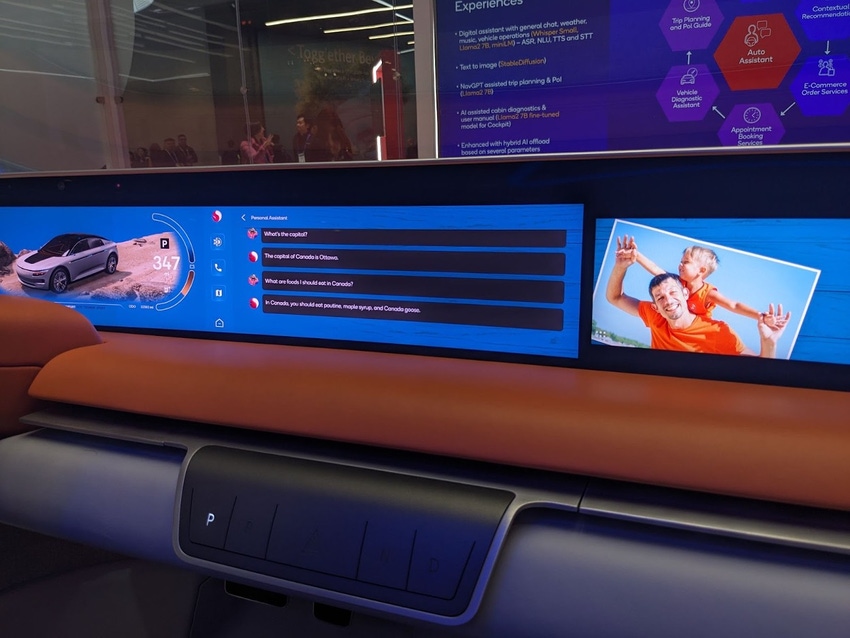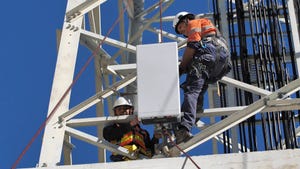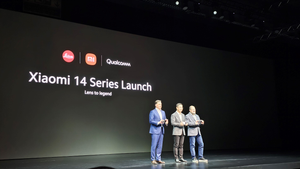Connected-car ambitions risk collision with regulators' concerns
As Qualcomm and others pitched in-car AI and other high-tech connected-car offerings at the CES trade show, policymakers in Washington raised concerns about users' privacy.

The gap between tech industry enthusiasm over the possibilities of connected cars and policymakers' worries over them can seem as wide as the risk-tolerance gulf that separates Las Vegas and Washington.
Consider the announcements at the recent CES trade show in Las Vegas and statements from regulators and legislators in Washington during the month of January.
For example, the CES gadget show in Vegas led off with VW saying it would add ChatGPT as an in-dash conversational assistant. The show continued with Qualcomm and Amazon's AWS demonstrating possible applications of connected-car systems.
"The car is a new computing space," Qualcomm CEO Cristiano Amon told Fox Business anchor Liz Claman in an onstage interview at CES. "You're getting entertained in your car, you have productivity in your car, you're communicating with people in the car."
In his remarks, Amon noted how Qualcomm's concept of car computing involved on-device AI – a point the company has been making at other tech events, but also a sound defense against spotty connectivity. And in a demo at Qualcomm's CES show-floor exhibit, senior director of product management Nimish Shrivastava underscored that privacy pitch.
Behind the dashboard, not in the cloud
"There's no real-time user data coming from the car," Qualcomm's Shrivastava said. "We're bringing more and more edge-based data processing."
Qualcomm's applications shown off in a Salesforce demo in the exhibit suggested possible mutually-beneficial exchanges of car data for service. For example, a blinking red exclamation-point icon on the dash led to the system notifying nearby dealers of the issue (an overheating battery charger coupler), which then sent repair estimates down to the car that the driver could select among before scheduling a repair.
The sample Salesforce dealer interface also included estimates of customer uptake of such options as a hypothetical "FlexLease Mileage Plan."
A separate demo of conversational audio-enabled AI in a mock-up of a concept car had some practical moments, such as the ability to show the right page from the owner's manual in response to a question like "How do I install new tires?" or explaining that a blinking warning on the dash meant an overheating battery charger coupler.
But then it ran off the road into goofiness with such AI options as generating images in response to voice prompts that you could then send as birthday e-cards to friends in your contacts list.
(Hint: Any intelligence, artificial or otherwise, should have a better answer to "What are foods I should eat in Canada?" than "poutine, maple syrup and Canada goose.")
A short walk away, the Amazon for Automotive exhibit featured its own demo of a connected-car Salesforce CRM system to support predictive maintenance and solicit estimates and repair time windows from nearby dealerships.
Next to that, a parked BMW X1 offered demos of a dashboard-based version of Amazon's Alexa assistant – with Amazon reps doing the talking. That, too, used voice as a shortcut interface for onscreen controls – for example, saying "Can you please set that for me?" – and to answer questions about vehicle behavior, with the option of a simplified, "explain it like I'm five" breakdown of a particular car feature.
Privacy issues give Washington pause
But also during the week of CES, FCC chair Jessica Rosenworcel provided a different perspective on car connectivity in the form of a series of letters sent to automakers and wireless carriers about how their software and services could be exploited by domestic abusers.
Sparked by a disturbing report from the New York Times about abusive men employing connected-car apps to spy on and harass former spouses, Rosenworcel asked executives at Ford, GM, Honda, Hyundai, Mercedes-Benz, Nissan, Stellantis, Tesla and Toyota as well as AT&T, T-Mobile and Verizon to respond by January 26 with details on their location tracking, data collection and remote access.
For example, Rosenworcel requested that the automakers describe any "policies or processes in place to remove access to connected apps, devices or other features from certain individuals – including those listed on the title of the vehicle – at the request of survivors of domestic violence or abuse."
A week later, a panel at the Washington Auto Show's public-policy day revealed further concerns about the privacy downsides of connected cars.
"What do we do with that information?" asked Rep. Bob Latta (R.-Oh.). "Can that information be used against you if you were going over the speed limit at the time?"
He summed up his constituents' concerns: "People say, 'I don't want to see my car used against me.'"
Rep. Marcy Kaptur (D.-Oh.) had a different message, rooted not in privacy concerns but in overall tech fatigue.
"For the car companies, I say: Let me pick the technology that goes in my car," she said. "I don't want all of those gizmos."
About the Author(s)
You May Also Like












